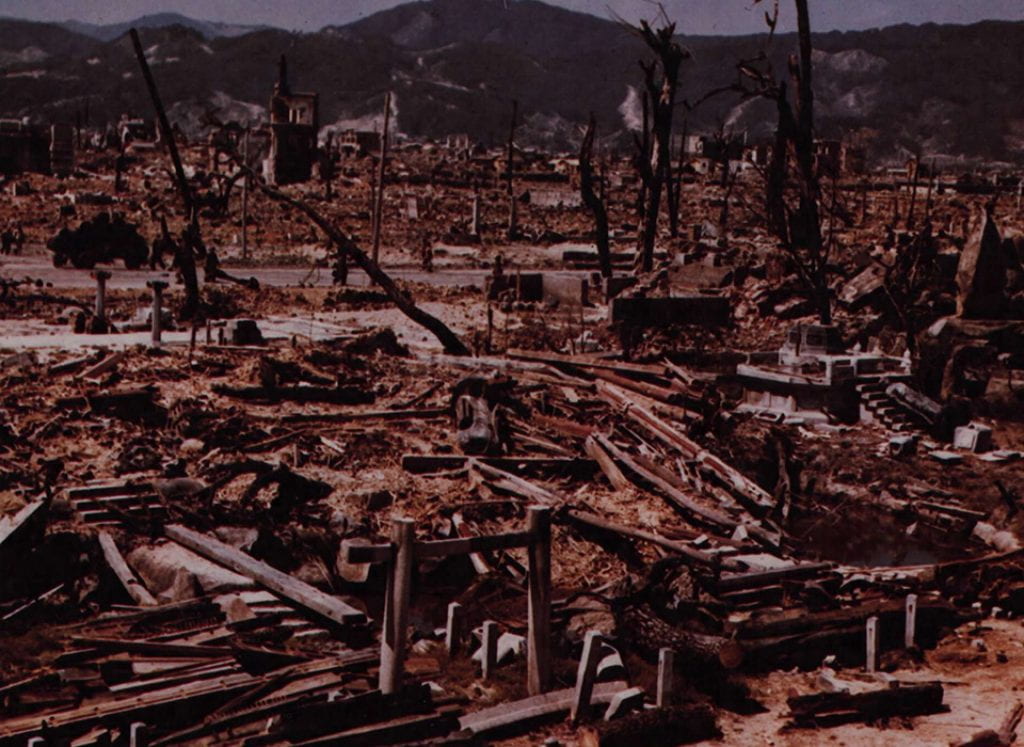It’s back to being blog time guys. And recently we’ve been doing one hell of a project. We are currently talking all about the atomic bomb. And one of the key parts to understanding the atomic bomb has been reading the novel called Hiroshima. Hiroshima was a long magazine piece written in 1946/85 by the author John Hersey. It features the stories of six survivors who lived through the atomic bomb, and in 1985 he revisits the survivors to show the aftermath and effects of the atomic bomb. I believe this book is against The atomic bomb, a critique on war, but most importantly a critique on a one sided mindset. And it was an incredibly important book for bringing this up, and all of these ideas are still relevant, as many articles today still discuss the importance of of Hiroshima.
Decades later, his six interviewees remain a human connection to the attacks and the deep, philosophical questions they raised. – National WW2 Museum
To give some context Hiroshima was written in a time of anti Japanese propaganda, A barely finished brutal war with Japan, and hatred for the Axis post WW2. It was written in the time when the atomic bomb was a grand victory, a technological marvel, and the US was the only one with this power in their hands. John Hersey‘s choice to show Hiroshima from a Japanese perspective was revolutionary, and completely shocking to people to see why had truly happened, the BBC says “It (Hiroshima) was talked of, commented on, read and listened to by many millions all over the world as they began to understand what really happened not just to the city but to the people of Hiroshima on 6 August 1945 and in the following days.” It was a shock and an upset. It showed proud Americans what they did was not just a victory, but a tragedy too. Choosing to take this radical opinion, and more importantly share this radical opinion, only makes sense if he was against the bomb. Why would he choose to portray sad painful parts of the bomb, and it’s clearly devastating effects on people, if he didn’t believe it to be wrong. He uses very specific language when talking about the horrors the characters saw after the bomb. Like “The eyebrows of some were burned off and skin hung from their faces and hands”, descriptive enough to paint you a picture, but incredibly human, like the character is telling you them self.

However this book is not just about the bomb, it’s about war. In every part of history I’ve ever learned about war has played a part of the story, and in fact I’m currently looking at a book on my bookshelf called War. War, and conflict in general is a human thing, but in Hersey’s book he reminds us of another part of being human, empathy. Up until his book, the view on the bomb was one-sided. It was only American, only prideful, excited, and happy, I mean they won, i’ve seen the videos, people were cheering in the streets. But there is never one side to war, and Hersey want you to see the other side. It shows people that western audiences could relate to, we chose mothers, fathers, Christians, people who everyone knows. My grandmother grew up in England during the second world war, and she said ( in one of my podcasts about a year ago) one of the most important things in her being able to move on was to see the other side. She went and visited Germany after the war knowing the damage they had caused to her country, and she saw the damage England had done. Seeing the other side allowed her to not only forgive, but feel sorry. And this is exactly Hersey’s aim, to take away the single perspective view of war that the Americans had.

Hiroshima has been in print since it’s release.
Now when it comes down to it, I understand my opinion about Hiroshima is not an incredibly revolutionary take. But I believe it is important. This bomb changed the way wars are fought, and this book changed opinions on that bomb. John Hersey’s book first allowed people to see a different perspective in war, and then 40 years later allowed them to see the effects of the bomb. We live in a world that is still affected by this bomb, and Hersey did one heck of a job telling people about it then, as Lesley M.M. Blume says “In 1946, Hersey’s story was the first truly effective, internationally heeded warning about the existential threat that nuclear arms posed to civilization,” And that threat is true today. But so is our need for empathy, A silly thing to say maybe, but in a world where mutual destruction is a real possibility and power is always wanted, it is so important to remember the lives these weapons destroy, and what Hiroshima tries to tell us.


Leave a Reply